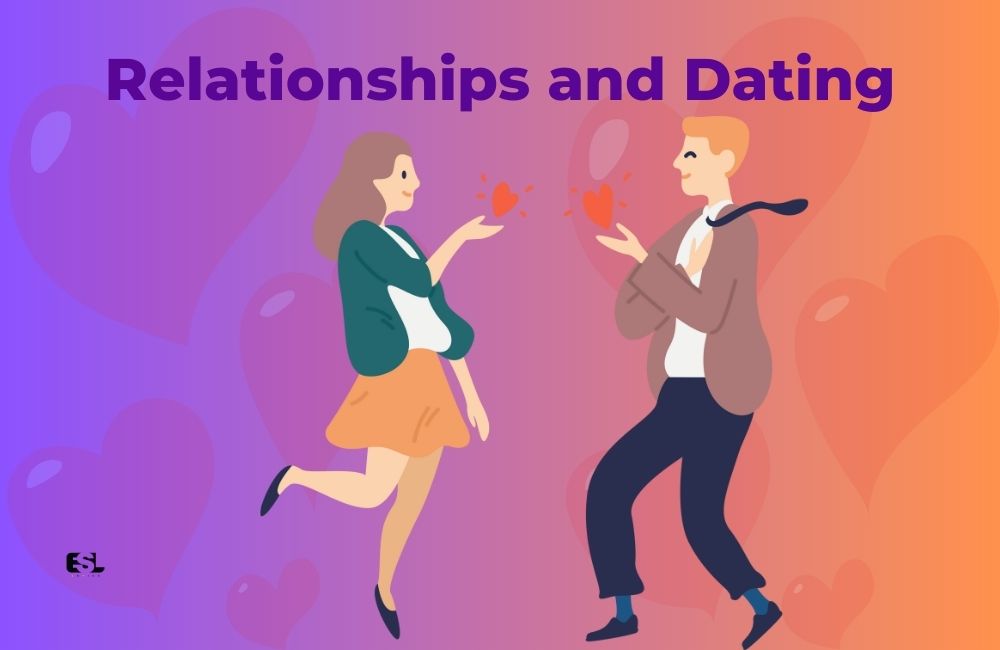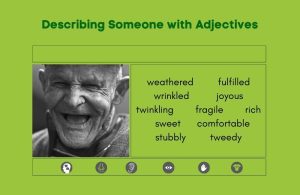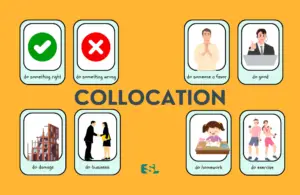Relationships and dating constitute significant aspect of human interaction. Whether you’re navigating the complex world of dating or trying to articulate your feelings towards your significant other, the right vocabulary can make all the difference.
This article will guide you through an extensive list of vocabulary related to relationships and dating, assisting you in expressing love, affection, and the intricacies of romantic interactions.
Table of Contents
- 1. General Dating Terms
- 2. Vocabulary for Expressing Feelings
- 3. Relationship Status
- 4. Love Confessions and Proposals
- 5. Expressing Love and Affection
- 6. Relationship Challenges and Endings
- 7. Reconciliation and Fresh Starts
- Sample Conversation: Using Vocabulary Related to Relationships and Dating
- Conclusion
- FAQ: Vocabulary Related to Relationships and Dating
1. General Dating Terms
In the initial stages of romantic exploration, certain terms can help effectively depict the budding relationship and associated emotions. Here are some common dating terms.
| Word/Phrase | Meaning/Usage | Example Sentences |
|---|---|---|
| Blind date | A social engagement between two people who have not previously met | “My friend set me up on a blind date.” |
| Crush | A brief but intense infatuation for someone | “She has had a crush on him since high school.” |
| Double date | A date in which two couples participate | “We’re going on a double date with James and his girlfriend.” |
| Love at first sight | Falling in love with someone the first time you see them | “For him, it was love at first sight.” |
| Infatuation | An intense but short-lived passion or admiration for someone | “He was just an infatuation, not true love.” |
| Break up | Ending a relationship | “She decided to break up with him because they wanted different things in life.” |
| Chemistry | A sense of attraction between two people | “They have amazing chemistry.” |
| Heartbroken | Overwhelmed by profound sorrow, especially due to a breakup | “After the breakup, she was heartbroken.” |
| Unrequited love | Feelings of love that are not reciprocated | “He had to deal with the pain of unrequited love.” |
| Platonic | A deep friendship that is not romantic | “Their relationship is purely platonic.” |
| Matchmaking | The act of arranging relationships or marriages by pairing up individuals | “Her grandmother loves matchmaking among her grandchildren’s friends.” |
| Long-distance relationship | A relationship between people who are geographically separated | “They’re in a long-distance relationship since he moved abroad for work.” |
If you are searching for an effective English language vocabulary builder, try Word Power Made Easy: The Complete Handbook for Building a Superior Vocabulary (Amazon Link). This time-tested classic has helped millions achieve mastery of English and improve their communication skills in business, the classroom, and in life.
2. Vocabulary for Expressing Feelings
Expressing feelings can be tricky, and the right vocabulary can help make it a bit easier. Here are some terms that might help.
| Word/Phrase | Meaning/Usage | Example Sentences |
|---|---|---|
| Affection | A gentle feeling of fondness or liking | “He has deep affection for her.” |
| Attachment | An emotional bond between two people | “Their attachment grew over time.” |
| Fondness | Affection or liking for someone or something | “He has a great fondness for her.” |
| Passion | Strong and barely controllable emotion | “They share a passion for each other.” |
| Adoration | Deep love and respect | “His adoration for her is obvious in his actions.” |
| Infatuated | Overwhelmed with an intense but short-lived passion or admiration for | “She is infatuated with him.” |
| Love-struck | Having a passionate desire for someone | “He is love-struck and can’t think of anything else.” |
| Smitten | Deeply affected with or struck by strong feelings of attraction, affection, or infatuation | “He’s completely smitten by her charm.” |
| Besotted | Strongly infatuated | “She is totally besotted with her boyfriend.” |
| Enamored | Be filled with love for | “He is clearly enamored by her.” |
| Captivated | Attract and hold the interest and attention of | “She was captivated by his smile.” |
| Charmed | Attract strongly, as if with a magnet | “He was charmed by her elegance and wit.” |
3. Relationship Status
One’s relationship status describes the nature of one’s romantic relationships. Here are some words to depict various statuses.
| Word/Phrase | Meaning/Usage | Example Sentences |
|---|---|---|
| Single | Not currently involved in a committed relationship | “She has been single for a while now.” |
| Dating | In the stage of a romantic relationship where individuals go on dates to assess each other’s suitability | “They have been dating for six months.” |
| Engaged | Having formally agreed to marry | “They got engaged last month.” |
| Married | Joined in matrimony | “They have been happily married for ten years.” |
| Divorced | No longer married | “He is divorced and has two kids from his previous marriage.” |
| Widowed | Lost their spouse through death | “She has been widowed for a couple of years now.” |
| Separated | Living apart and planning to divorce but still legally married | “They have been separated for a year.” |
| Co-habiting | Living together and having a sexual relationship without being married | “They have been co-habiting for a couple of years.” |
| In a relationship | In a committed romantic association | “He is in a relationship.” |
| In an open relationship | A relationship where one or both parties have the freedom to experience other sexual relationships | “They are in an open relationship.” |
| Committed | In a relationship that is likely to last | “They are in a committed relationship.” |
| Casual | A relationship that involves little serious or formal commitment | “He prefers casual relationships.” |
4. Love Confessions and Proposals
Confessing love and proposing marriage are big steps in a relationship. Here’s some vocabulary related to these romantic milestones.
| Word/Phrase | Meaning/Usage | Example Sentences |
|---|---|---|
| Confess | Admit or state that one has a particular feeling or is in love | “He confessed his feelings for her.” |
| Proposal | An offer of marriage | “He made a romantic proposal on the beach.” |
| Engagement ring | A ring indicating that the person wearing it is engaged to be married | “He gave her a beautiful engagement ring.” |
| To pop the question | To ask someone to marry you | “He is planning to pop the question on their anniversary.” |
| Say yes | To accept a proposal | “She said yes when he proposed.” |
| Tie the knot | Get married | “They are planning to tie the knot next year.” |
| Fiancé/Fiancée | A man/woman who is engaged to be married | “She introduced him as her fiancé.” |
| Down on one knee | Traditional pose for a marriage proposal | “He got down on one knee and proposed.” |
| Fall head over heels | Fall deeply and completely in love | “He fell head over heels in love with her.” |
| Love letter | A letter expressing the writer’s feelings of love | “He wrote her a passionate love letter.” |
| Heartfelt | Deeply or sincerely felt | “She gave a heartfelt confession of her love.” |
| Sweet nothings | Romantic or affectionate words and phrases | “He whispered sweet nothings into her ear.” |
5. Expressing Love and Affection
There are numerous ways to express love and affection; this vocabulary will help articulate those warm feelings.
| Word/Phrase | Meaning/Usage | Example Sentences |
|---|---|---|
| I love you | An expression of deep affection | “He told her ‘I love you’ for the first time.” |
| Hugs and kisses | An expression of affection | “She sent him a note signed with ‘hugs and kisses’.” |
| Cuddle | Hold close in one’s arms as a way of showing love or affection | “They cuddled on the sofa watching a movie.” |
| Kiss | Touch with the lips as a sign of love, sexual desire, or greeting | “He leaned in to kiss her.” |
| Hold hands | An act of mutual affection where two individuals maintain contact between their hands | “They often hold hands while walking.” |
| Embrace | Hold someone closely in one’s arms, especially as a sign of affection | “They shared a warm embrace.” |
| Fondly | In a way that shows love or great liking | “He looked at her fondly.” |
| Care for | Look after and provide for the needs of | “He genuinely cares for her.” |
| Adore | Love and respect deeply | “She adores him.” |
| Cherish | Protect and care for someone lovingly | “He cherishes every moment spent with her.” |
| Sweetheart | A term of affection | “He calls her his sweetheart.” |
| Darling | A term of endearment for one you love | “She is his darling.” |
6. Relationship Challenges and Endings
Unfortunately, not all relationships are smooth. Here are some terms to describe relationship challenges and endings.
| Word/Phrase | Meaning/Usage | Example Sentences |
|---|---|---|
| Break up | End a relationship | “They decided to break up after two years of dating.” |
| Divorce | The legal dissolution of a marriage by a court or other competent body | “They got a divorce last year.” |
| Split up | End a relationship | “They decided to split up after months of fighting.” |
| On the rocks | A relationship that is in trouble | “Their marriage is on the rocks.” |
| Drift apart | To gradually become less friendly or intimate | “They drifted apart after he moved away for work.” |
| Deal breaker | A factor or issue which, if unresolved during negotiations, would cause one party to discontinue discussions | “His unwillingness to commit was a deal breaker for her.” |
| Estranged | No longer close or affectionate to someone; alienated | “She is estranged from her husband.” |
| Unfaithful | Engaging in sexual relations with a person other than one’s regular partner in contravention of a previous promise or understanding | “He was unfaithful to her.” |
| Cheat on | Be sexually unfaithful | “She found out that he cheated on her.” |
| Rebound | A new relationship that one enters shortly after the breakup of a significant love relationship | “He started dating on the rebound.” |
| Fall out of love | Stop feeling affectionate for | “She fell out of love with him.” |
| Heartbreak | Overwhelming distress caused by a disappointment in love | “She suffered a heartbreak when he left her.” |
7. Reconciliation and Fresh Starts
Despite difficulties, relationships can heal, and fresh starts can be made. These terms describe reconciliations and new beginnings.
| Word/Phrase | Meaning/Usage | Example Sentences |
|---|---|---|
| Make up | Reconcile after a quarrel | “They decided to make up after their fight.” |
| Patch up | Mend a relationship after a disagreement or dispute | “They managed to patch up their relationship.” |
| Start fresh | Begin anew | “They decided to start fresh and forget about the past.” |
| Second chance | An opportunity to try something again after failing one time | “She gave him a second chance.” |
| Rekindle | Revive something that has been lost | “They rekindled their relationship after a year apart.” |
| Reconcile | Restore friendly relations between | “They reconciled after months of not speaking.” |
| Forgive and forget | Decide to stop feeling angry or resentful toward someone for an offense, flaw, or mistake | “She decided to forgive and forget.” |
| Mend fences | Improve or repair a relationship that has been damaged by an argument or disagreement | “He is trying to mend fences with her.” |
| Make amends | Do something good to show that you are sorry about something you have done | “He tried to make amends for his mistake.” |
| Bury the hatchet | Make peace; end a quarrel, dispute, or fight | “They decided to bury the hatchet and be friends again.” |
| Kiss and make up | Resolve one’s differences | “They always fight but quickly kiss and make up.” |
| Turn over a new leaf | Begin again, fresh | “He promised to turn over a new leaf.” |
To elevate your vocabulary in just 30 days, I recommend to my students an informative, fun, and accessible guide to utilizing powerful language. Millions of individuals have enhanced their academics, job skills, and confidence by dedicating just fifteen minutes daily to the exercises and tests of 30 Days to a More Powerful Vocabulary (Amazon Link), a top-selling. It offers step-by-step methods to bolster language prowess, discover compelling words, and daily vocabulary enhancement with pronunciation guidance.
Sample Conversation: Using Vocabulary Related to Relationships and Dating
Situation: At a picturesque park, Jamie and Morgan are reminiscing about their journey from being acquaintances to a committed couple.
Jamie: Morgan, do you remember our first “blind date”? I was so “nervous” about making a good “first impression”.
Morgan: How could I forget? The way you “complimented” my dress and tried to strike a “casual conversation” to ease the tension was so endearing.
Jamie: It’s funny how we quickly went from “casual dating” to being “exclusive”. I guess we just had that “chemistry” from the start.
Morgan: Definitely! The “compatibility” was undeniable. Even our “values” and life “aspirations” aligned so well.
Jamie: I cherish how we’ve always been “supportive” of each other’s dreams. And those “intimate moments” we share, just talking about life, make our bond even stronger.
Morgan: True. Our “commitment” to each other has grown over time. It’s not just about “romance”, but also the “trust” and “understanding” we’ve built.
Conclusion
The world of dating and relationships is deep and varied, filled with a spectrum of emotions that can be challenging to express adequately. This extensive vocabulary list provides the words you need to articulate romantic relationships’ many stages, feelings, and complexities.
Whether you’re experiencing the thrill of new love or the pain of heartbreak, these words will help you express your emotions more clearly. Remember, communication is the key to any successful relationship; a rich vocabulary is a significant part of that communication.
FAQ: Vocabulary Related to Relationships and Dating
1. What is a “blind date”?
A “blind date” refers to a social engagement between two people who have not previously met, often arranged by mutual acquaintances or a dating service.
2. Why is making a good “first impression” important in dating?
A “first impression” can set the tone for future interactions. In dating, it can influence whether two individuals feel attracted to each other or wish to continue seeing one another.
3. How does “casual dating” differ from being “exclusive”?
“Casual dating” refers to seeing multiple people without a commitment to any specific person. Being “exclusive” implies both individuals have agreed to date only each other.
4. What is meant by relationship “chemistry”?
“Chemistry” in a relationship refers to a strong mutual attraction and emotional connection between two individuals.
5. How is “compatibility” significant in relationships?
“Compatibility” means that two individuals have personalities, values, and life goals that align well, leading to a harmonious relationship.
6. Why are shared “values” crucial in a relationship?
Shared “values” ensure that both individuals have similar beliefs, principles, and priorities, which can result in fewer conflicts and a more profound understanding of each other.
7. What does it mean to be “supportive” in a relationship?
Being “supportive” means offering encouragement, understanding, and assistance to your partner, especially during challenging times.
8. How do “intimate moments” contribute to a relationship?
“Intimate moments”, which could be physical or emotional, strengthen the bond between two individuals by fostering closeness and deeper understanding.
9. Why is “trust” foundational in relationships?
“Trust” ensures that both individuals can rely on each other, be vulnerable, and feel secure, leading to a stable and healthy relationship.
10. What role does “understanding” play in a romantic relationship?
“Understanding” means being empathetic and aware of your partner’s feelings, needs, and perspectives, promoting harmony and reducing conflicts in the relationship.





